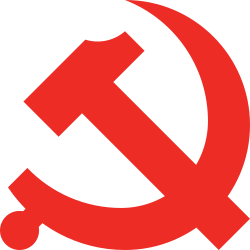| 中央港澳工作领导小组 Zhōngyāng Gǎng Ào Gōngzuò Lǐngdǎo Xiǎozǔ | |
 | |
| Agency overview | |
|---|---|
| Formed | August 1978;47 years ago (1978-08) |
| Jurisdiction | Chinese Communist Party |
| Headquarters | Beijing |
| Agency executives |
|
| Parent agency | Central Committee of the Chinese Communist Party |
| Child agency | |
| Central Leading Group on Hong Kong and Macau Affairs | |||||||||||
|---|---|---|---|---|---|---|---|---|---|---|---|
| Simplified Chinese | 中央港澳工作领导小组 | ||||||||||
| Traditional Chinese | 中央港澳工作領導小組 | ||||||||||
| |||||||||||
The Central Leading Group on Hong Kong and Macau Affairs is an internal policy coordination group of the Central Committee of the Chinese Communist Party (CCP), reporting to the CCP Politburo, in charge of supervising and coordinating Beijing's policies towards the Special Administrative Regions of Hong Kong and Macau.
Contents
- History
- Functions
- Membership
- Leadership
- 19th Central Committee
- 20th Central Committee
- See also
- References
The Group was established as the Central Coordination Group for Hong Kong and Macau Affairs in 1978. In 2020, the group was upgraded from a Central Coordination Group to a Central Leading Group. The Group is the highest body for China's policy towards Hong Kong and Macau. Since 2003, the group has always been led by a member of the CCP Politburo Standing Committee. The General Office for the group is also known as the Hong Kong and Macau Affairs Office.
